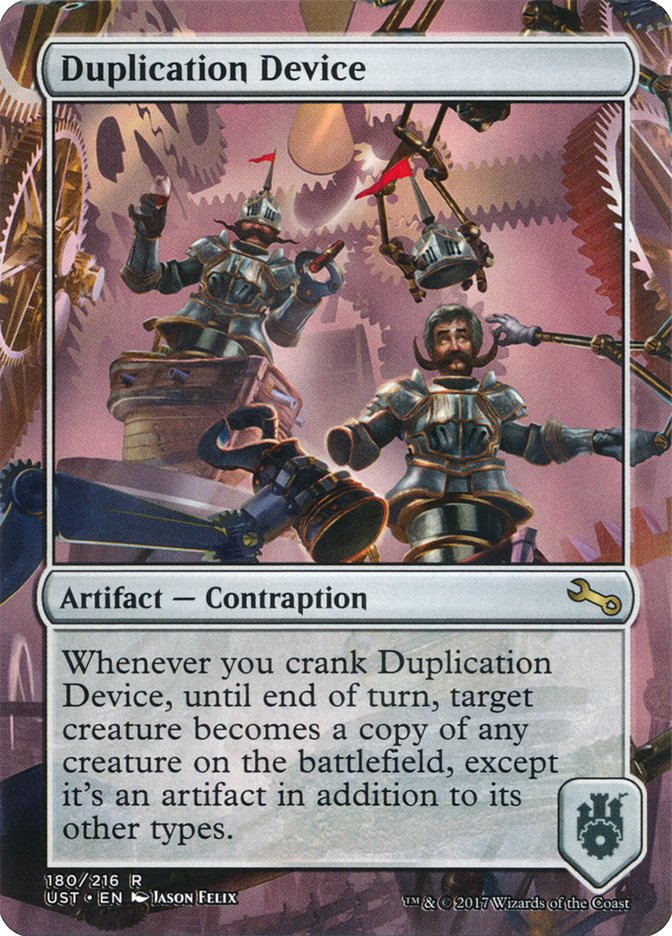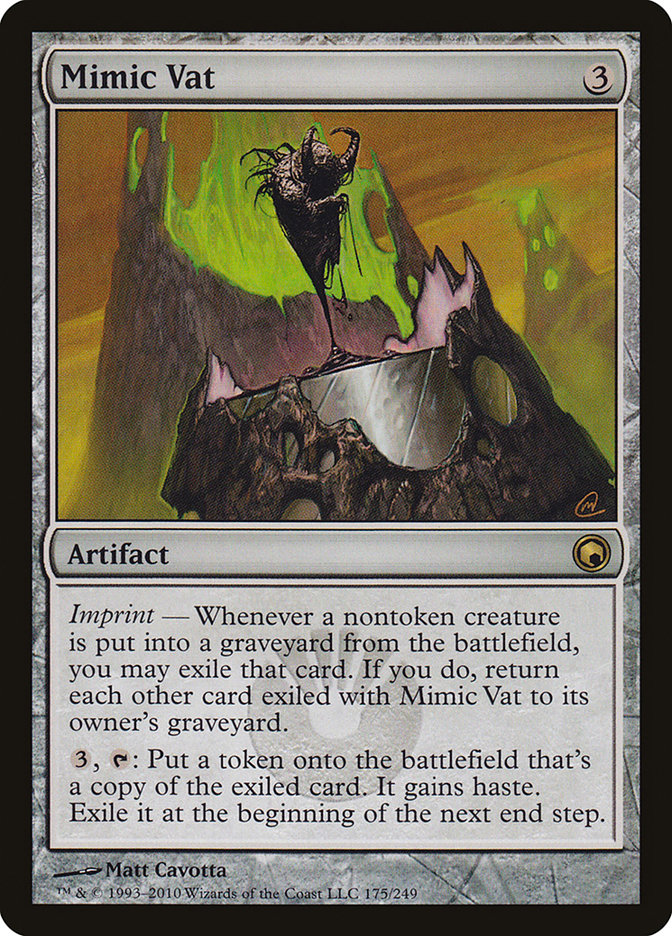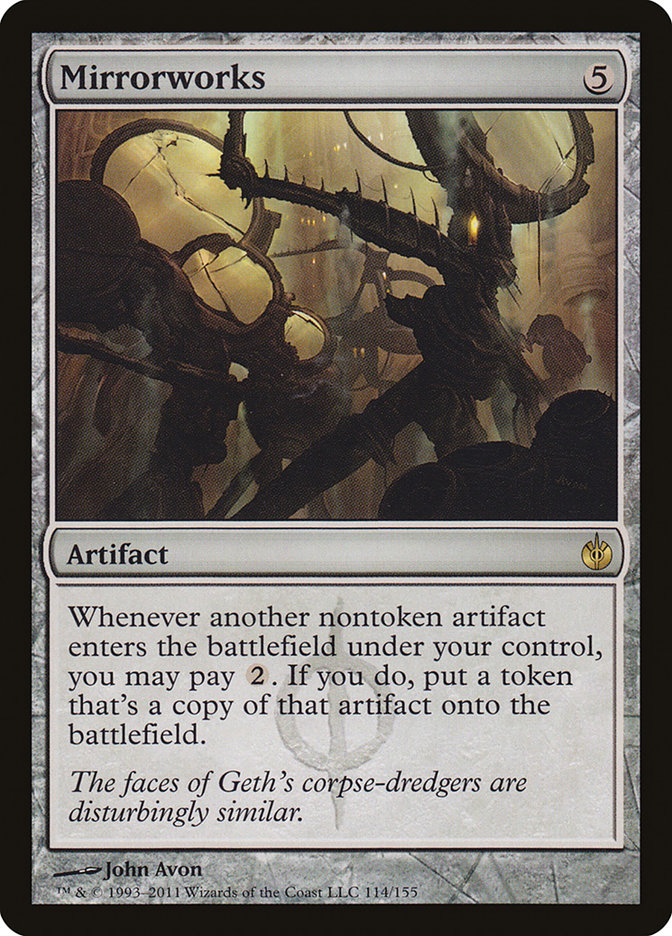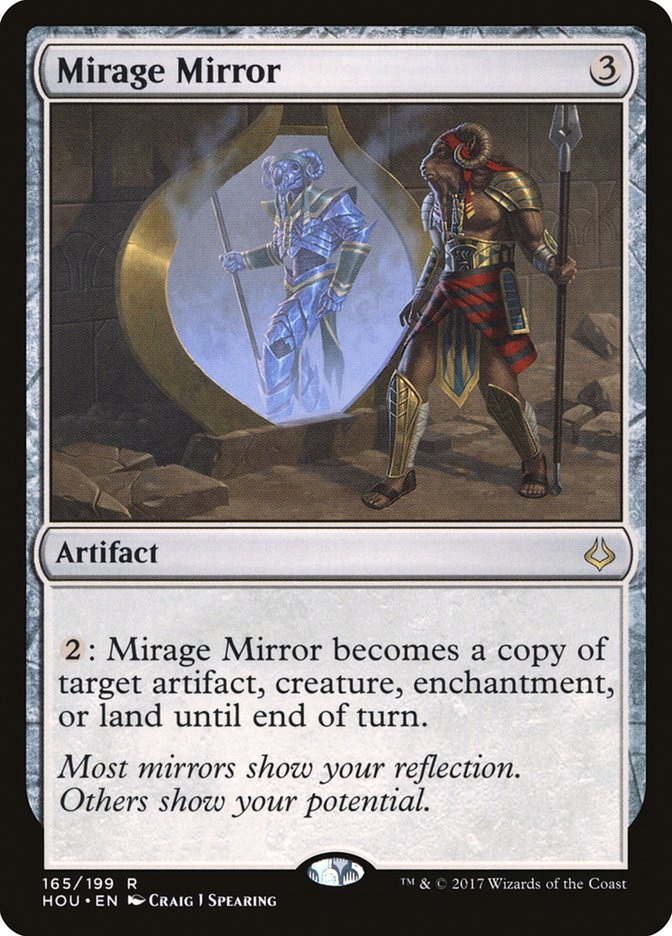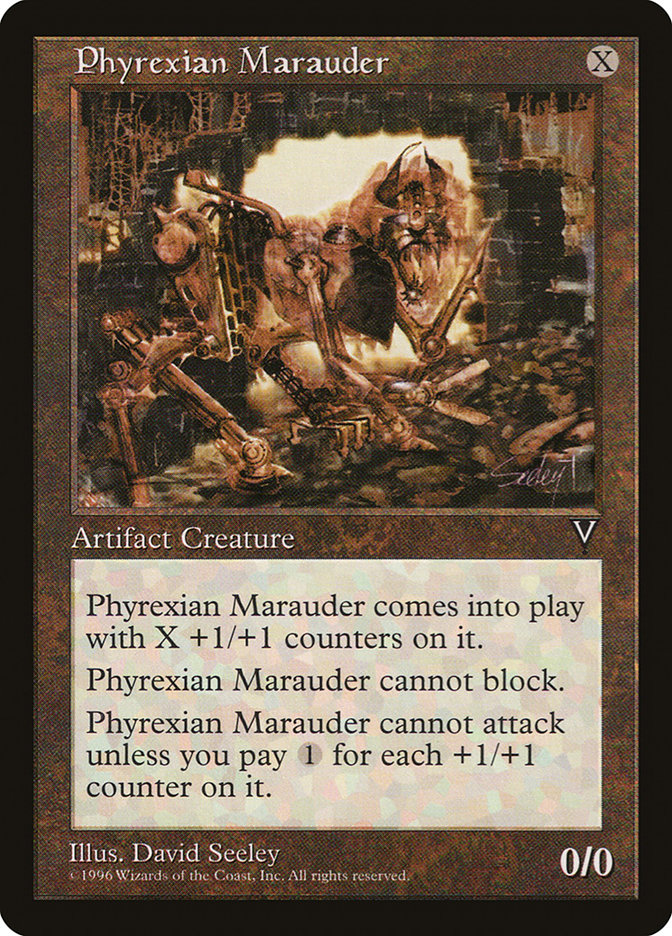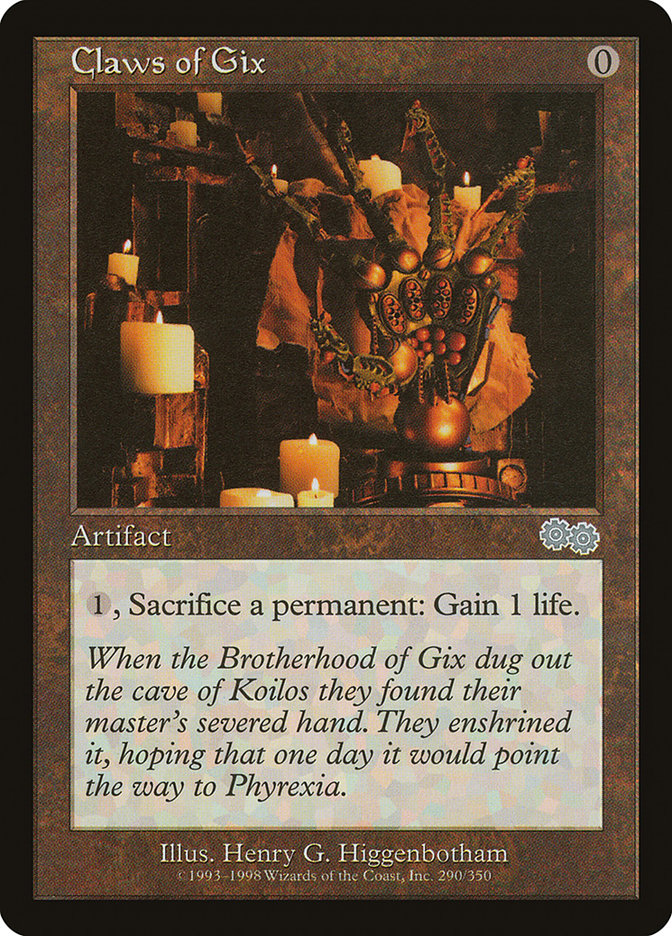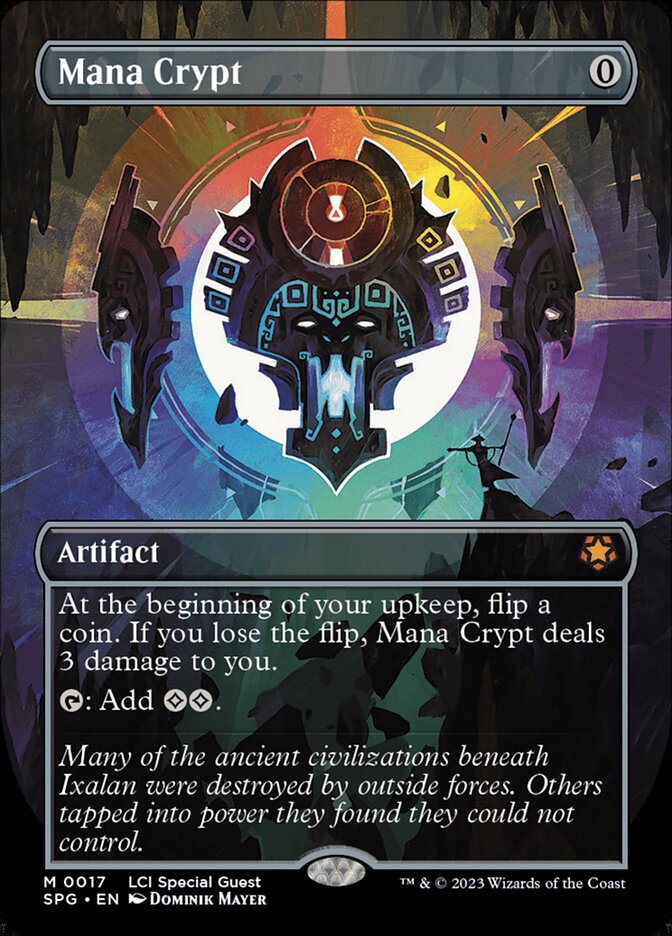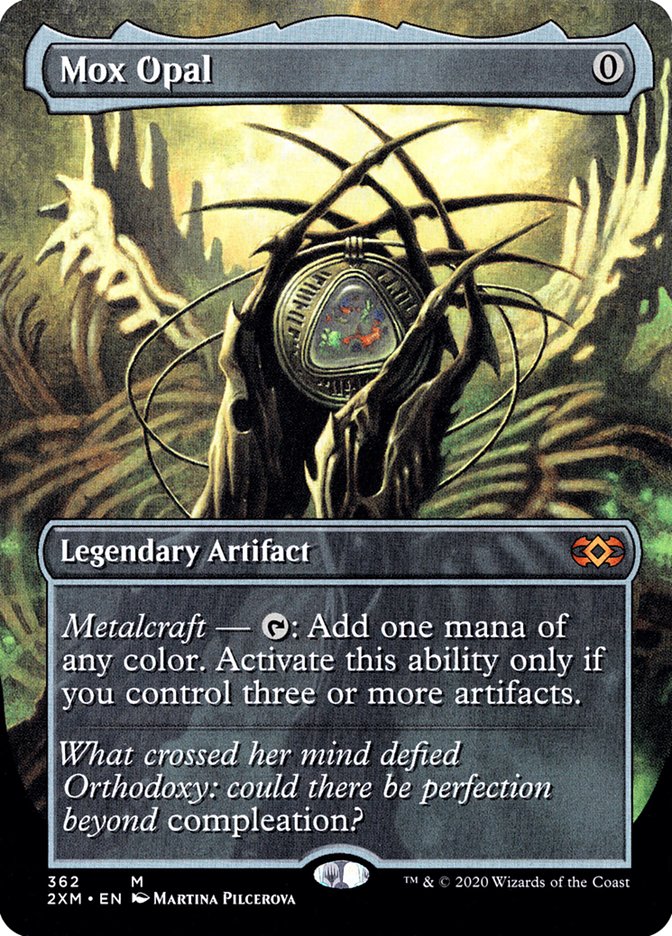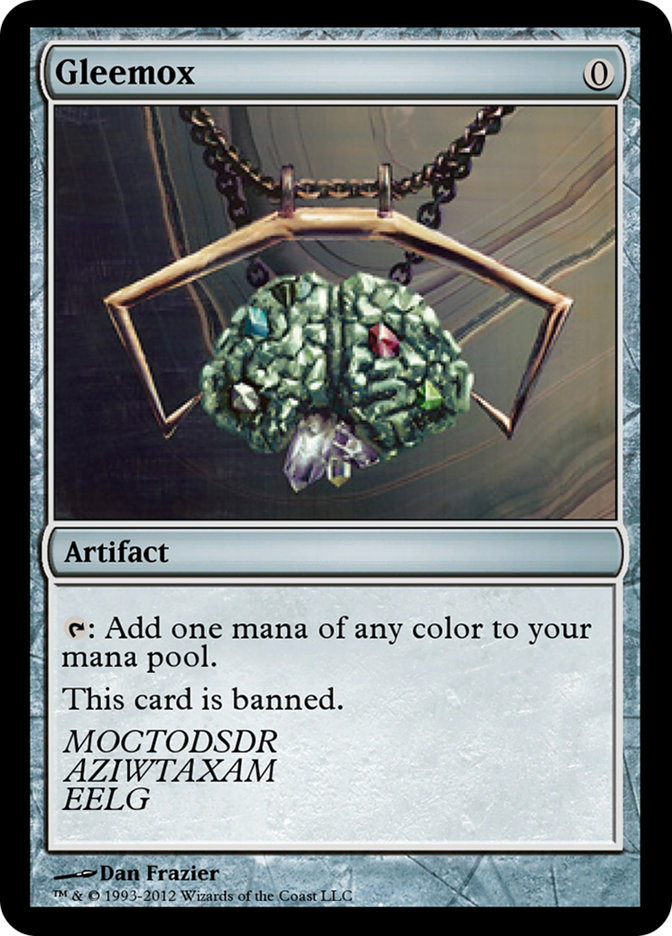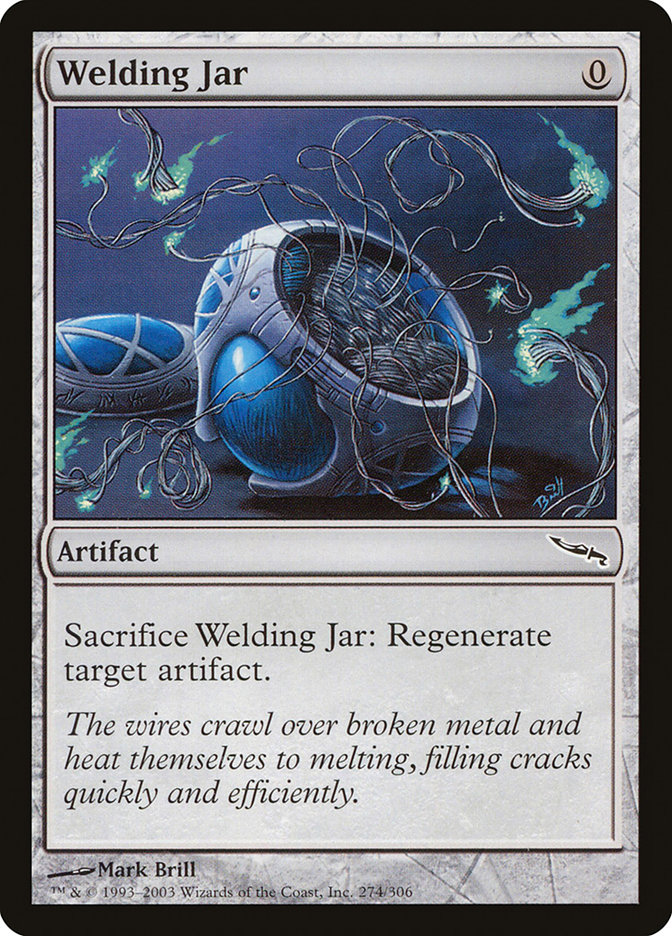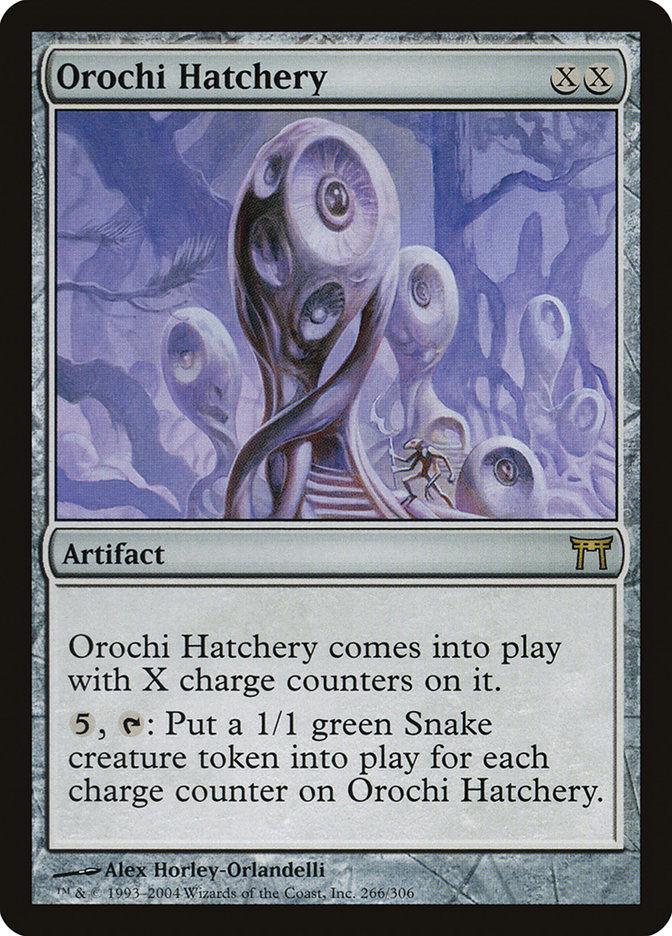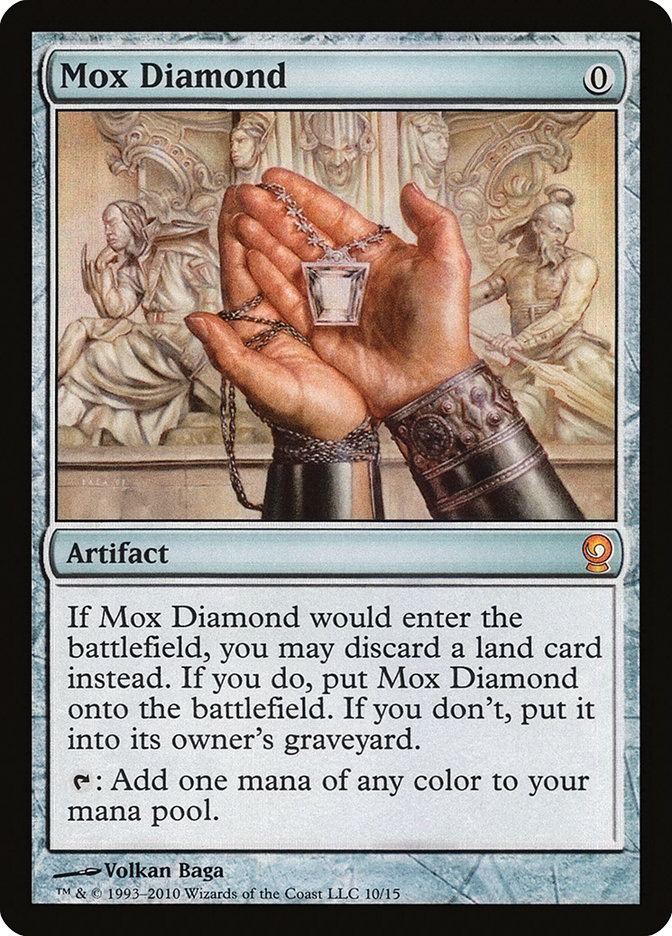Duplication Device MTG Card
Text of card
Whenever you crank Duplication Device, until end of turn, target creature becomes a copy of any creature on the battlefield, except it's an artifact in addition to its other types.
Cards like Duplication Device
Duplication Device offers a refreshingly novel play experience on the MTG battlefield, drawing parallels to other artifact cards that facilitate token generation. Notable in its similarities is Mimic Vat, a card that also seizes upon the opponents’ creatures to create tokens. However, whereas Mimic Vat relies on the death of a creature to activate its ability, Duplication Device forges ahead with the ability to copy tokens that are already present on the field, presenting a tactical edge in redundancy and board presence.
Yet another comparison can be made with Mirrorworks, which embodies the spirit of copying as well. While Mirrorworks focuses on producing a copy of a non-token artifact that enters the battlefield under your control, Duplication Device broadens its horizon by concentrating on token replication. This slight but significant deviation in focus grants players a multitude of strategies to deploy in creating substantial token armies. Contrastingly, Mirage Mirror, although not a direct producer of tokens, offers the adaptability to become a copy of any target artifact, creature, enchantment, or land until end of turn, showcasing a different yet equally potent form of duplicating game elements.
Assessing them side by side, it’s clear that Duplication Device holds its own against other artifices in MTG due to its unique token cloning capability, catering to a distinctively synergistic approach in token-focused decks.
Cards similar to Duplication Device by color, type and mana cost
Card Pros
Card Advantage: Duplication Device shines in providing incremental advantage by copying other permanents you control. Imagine doubling up on powerful creatures or artifacts you have in play, potentially overwhelming your opponents with multiplied threats.
Resource Acceleration: While not directly a mana source, this card can replicate permanents like mana rocks or creatures that tap for mana, facilitating a significant increase in your resource production each turn.
Instant Speed: The versatility of Duplication Device extends to its activation at instant speed. This allows savvy players to wait until the end of an opponent’s turn before deciding to clone a permanent, keeping their strategies flexible and adaptive in the face of unforeseen plays.
Card Cons
Discard Requirement: Duplication Device demands that you part with another card from your hand in order to unleash its potent ability. This trade-off can be especially taxing when your options are already dwindling, leaving you in a precarious spot of choosing between activation or holding on to vital resources.
Specific Mana Cost: The artifact’s ability necessitates a particular mana combination, which could disrupt the fluidity in a multicolored deck. Decks not tailored to consistently produce the necessary mana types might find the Duplication Device’s activation cost restrictive and less adaptable.
Comparatively High Mana Cost: With a noticeable mana investment required to get the gears turning on Duplication Device, players must consider if the potential to double up on tokens is worth sidelining other, possibly more impactful, spells. Its cost efficiency is subject to debate when stacked against other cards in the same mana range that could provide immediate and less conditional benefits.
Reasons to Include Duplication Device in Your Collection
Versatility: Duplication Device offers a unique flexibility to player strategies, as it can copy numerous permanent types, catering to a variety of deck builds. This multipurpose nature enables it to suit various playstyles and adapt to evolving game situations.
Combo Potential: The card’s ability to clone creatures or other permanents opens up a vast array of combo opportunities. Imagine doubling up on powerful effects or essential tokens, this potential synergy with other cards can be a game-changer in both casual and competitive play.
Meta-Relevance: In a shifting meta, Duplication Device holds its value by aligning with several popular archetypes. As decks iterate and evolve, having access to a card that can imitate key pieces on the battlefield can be fundamental for maintaining competitiveness.
How to beat Duplication Device
Confronting Duplication Device on the battlefield can be both a tactical challenge and an opportunity for strategic prowess in Magic: The Gathering. This card’s ability to clone creatures turns the tide by amassing a formidable tableau for your opponent. However, there are methods to dismantle this device and maintain an edge.
Engaging removal spells is a straightforward tactic. Addressing the Duplication Device with artifact destruction like Naturalize or Shatter before it becomes active thwarts your opponent’s plans. Similarly, counter spells like Negate serve as preemptive strikes, keeping the Device from ever hitting the field. It’s also wise to focus on managing the threats it could duplicate, maintaining creature control with spells like Path to Exile or Doom Blade to ensure there’s nothing worthwhile to copy.
Lastly, leveraging enchantments like Stony Silence can passively inhibit artifacts, stalling Duplication Device and other gear-based strategies. A keen understanding of timing and threat evaluation is crucial. By intercepting the Device’s activation or preventing worthy targets from being cloned, you retain control and pave a path to victory.
Where to buy
If you're looking to purchase Duplication Device MTG card by a specific set like Unstable, there are several reliable options to consider. One of the primary sources is your local game store, where you can often find booster packs, individual cards, and preconstructed decks from current and some past sets. They often offer the added benefit of a community where you can trade with other players.
For a broader inventory, particularly of older sets, online marketplaces like TCGPlayer, Card Kingdom and Card Market offer extensive selections and allow you to search for cards from specific sets. Larger e-commerce platforms like eBay and Amazon also have listings from various sellers, which can be a good place to look for sealed product and rare finds.
Additionally, Magic’s official site often has a store locator and retailer lists for finding Wizards of the Coast licensed products. Remember to check for authenticity and the condition of the cards when purchasing, especially from individual sellers on larger marketplaces.
Below is a list of some store websites where you can buy the Duplication Device and other MTG cards:
 BUY NOW
BUY NOW BurnMana is an official partner of TCGPlayer
- eBay
- Card Kingdom
- Card Market
- Star City Games
- CoolStuffInc
- MTG Mint Card
- Hareruya
- Troll and Toad
- ABU Games
- Card Hoarder Magic Online
- MTGO Traders Magic Online
See MTG Products
Rules and information
The reference guide for Magic: The Gathering Duplication Device card rulings provides official rulings, any errata issued, as well as a record of all the functional modifications that have occurred.
| Date | Text |
|---|---|
| 2018-01-19 | Any Contraption that’s on the battlefield and wasn’t assembled immediately heads to the scrapyard. However, if it’s a not an actual Contraption card (like Copy Artifact isn’t), it goes to your graveyard as normal. Non-Contraption cards can’t be in the scrapyard. |
| 2018-01-19 | At the beginning of your upkeep, if you control any Contraptions, move the CRANK! counter to the next sprocket. You may then crank any number of Contraptions on that sprocket, causing their abilities to trigger. Cranking a Contraption is always optional. |
| 2018-01-19 | Contraptions are artifacts. Anything that interacts with artifacts will interact with Contraptions. |
| 2018-01-19 | Contraptions aren’t put into your main deck. They go into a separate deck called the Contraption deck. |
| 2018-01-19 | If a Contraption would leave the battlefield and go to any zone other than exile, it instead goes to the scrapyard, the Contraption deck’s version of the graveyard. Things that affect the graveyard do not affect the scrapyard. You can exile Contraptions just fine. |
| 2018-01-19 | If you crank multiple Contraptions, their abilities can be put onto the stack in any order. The ability put onto the stack will resolve first. |
| 2018-01-19 | If you or a permanent you control are instructed to assemble a Contraption, reveal the top card of your Contraption deck. Put it onto the battlefield on one of the three sprockets. |
| 2018-01-19 | If you or a permanent you control assembles a Contraption and your Contraption deck is empty, nothing happens. You don’t lose the game. |
| 2018-01-19 | In Constructed formats, a Contraption deck must have at least fifteen different Contraption cards and no more than one of each. |
| 2018-01-19 | In Limited formats, a Contraption deck may include any number of Contraption cards in your card pool. You don’t have to include every Contraption card you draft or open in sealed deck. In those formats, your Contraption deck may include duplicates. |
| 2018-01-19 | In silver-bordered games using Contraptions, you have three sprockets, illustrated on the back of Contraption cards. At the start of the game, put a CRANK! counter on sprocket 3. |
| 2018-01-19 | While Contraptions you control are on the battlefield, the Contraption deck is not, even if you are using it to signify the three sprockets. |
